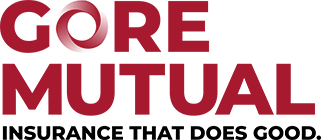
Get Cheap Home Insurance in Kamloops
Compare home insurance quotes from 50+ providers in a single search!
Jump straight to...
- How home insurance works in Kamloops
- How to get the cheapest home insurance quote in Kamloops
- How much does average home insurance cost in Kamloops?
- Factors that determine your Kamloops home insurance premium
- Top home insurance companies in Kamloops
- Frequently asked questions about Kamloops home insurance
How home insurance works in Kamloops
Home purchase is likely to be the biggest investment you’ll ever make, though not as big as it would’ve been during the height of the pandemic as at the tail end of 2022, house prices in Kamloops went from the average of $820,990 to $631,660 – a 23.5% drop.
If you’re one of the people looking to take advantage of this market cooldown, don’t forget to account for home insurance, as most lenders won’t mortgage a home unless it’s insured (even though home insurance is not legally required in British Columbia). Even if you don’t require insurance to own your home, we still recommend that you get it, as it is the best way to protect yourself.
With that in mind, let’s look at what most insurance policies cover:
- Property: This covers damage or loss of your home as well as other buildings on your property (e.g. garage).
- Contents: This covers all the possessions on your property, including your vehicle. Do note that expensive items such as jewelry may need additional coverage.
Note: We recommend that you catalogue all your belongings, along with information such as the cost of replacement, receipts (for major items only), serial numbers and photos. This will make filing a claim much easier down the road.
Home insurance policies also include:
- Liability: This protects you from a potential lawsuit due to an injury suffered by someone visiting your property or due to the damage you may inflict on the property of others.
- Additional living expenses: This protects you in case you need to be away from your home while it’s being repaired from covered damage. Often includes expenses like lodging and food.
Home insurance policy differences
Home insurance policies come with different levels of coverage against various perils. Note that different companies have different policies, so be sure to shop around before committing to any policy. Consider using InsuranceHotline.com for that.
- Standard: Also known as ‘basic’ or ‘named perils,’ this coverage protects you only against the perils listed in your policy. For instance, if the policy lists fire, but not flooding or other perils, then you will be covered for fire only.
- Broad: Unlike the basic policy, this one protects your home from all perils, aside from the ones listed as exclusions. For instance, if flooding is listed, then you won’t be covered for it. But you will be covered for the rest, such as fire, theft and so on. As for your possessions, it only covers named perils, similarly to the basic policy.
- Comprehensive: Like the name suggests, this one protects both your property and possessions from all perils, aside from the ones listed as exclusions.
- No-frills: Applies only to homes that don’t meet typical standards for home insurance. For instance, a home may have physical problems that are highly likely to cause damage down the road. No-frills coverage is even more basic than standard, so be sure to consult with your insurer to know what’s covered.
Commonly covered perils
Insurers don’t offer coverage for every single event that can damage or destroy your home. These include:
- Fire and smoke
- Explosion
- Lightning
- Theft and vandalism
- Aircraft or vehicle impact
- Water damage (excludes flooding)
- Wind
- Falling objects (excludes objects moved by snowslide, mudslide or earthquake)
- Window breakage
Optional coverage
Since there is no policy on earth that covers every peril, many homeowners go for optional protections, also known as ‘riders,’ ‘floaters’ or ‘add-ons.’ Here are some of the major perils not covered by a basic policy, but can still be purchased additionally:
- Flood: This covers damage by bodies of water overflowing onto dry land, such as rivers. Also referred to as overland water. If you live in an area where flooding is common – and there are many such areas in Kamloops – you may not get this coverage. But be sure to ask your insurer about it, just in case.
- Sewer back-up: Covers flooding and water damage that happens due to backed up sewage pipes, toilets, drains and showers.
- Earthquake: This includes damage inflicted by earthquakes. They are rarely covered by standard insurance, though if an earthquake causes fire on your property, you may be covered for that. Given that Kamloops is in British Columbia, the most earthquake-prone province in Canada, we recommend getting this coverage.
- Windstorm: If a windstorm damages the structure of your home, breaks your windows, ruins your possessions or covers your property in debris, this will cover you. Note that water damage due to rain or hail may not be included.
- Valuable items: If you possess expensive items like jewelry and collectibles, this will cover you. However, you do need to give your insurer current appraisals for the items, or you won’t get the right coverage.
How to get the cheapest home insurance quote in Kamloops
Get multiple Kamloops home insurance quotes in the time it takes to get just one.
1. Enter Postal Code
Start with your postal code!

2. Enter Your Information
Answer a few quick questions about yourself and your home.

3. Compare Your Quotes
Compare home insurance coverage and quotes from 50+ insurance companies.
We've got hundreds of 5 star reviews
2,172 reviews on TrustPilot. See some of the reviews here.
Louis Triantafillou
SYED IMAM
Mi
Felipe Cespon
Ana Garcia
James Murphy
Pratap
customer
Robert Rasmussen
Edica Sasenarine
Rana Nazir
Garry Merin
Pat Savage
How much does average home insurance cost in Kamloops?
The average annual insurance cost in British Columbia and, by extension, Kamloops can be as high as $1,700, according to insurance providers like Surex and InsureBC. Some of the reasons for this include:
Natural disasters
Catastrophic events in British Columbia throughout 2021 and 2022, including a flood that reportedly cost more than $450 million, destructive wildfires and a record fall draught.
More damage to homes means more files being claimed by homeowners, which results in higher premiums for everyone. With enough evidence to suggest that these disasters are connected to climate change, it’s safe to suggest that they are here to stay, meaning that the rates won’t change either (unless other factors affect them).
Renovations
The pandemic motivated a lot of people stuck in their homes to renovate. In fact, according to a study by BC Hydro, half of British Columbians have completed a renovation since the beginning of the pandemic. The biggest reasons included aesthetics (35%), comfort increase (29%), energy efficiency increase (10%) and extra time (10%). This has in turn led to renovation regret – at least for 20% of British Columbia homeowners.
There are many factors that home insurance providers in Kamloops consider when determining their rate for each home and homeowner. While you can’t control their decision-making process, you can affect some of these factors.
Here’s what they are:
Home-related factors
- Replacement cost: The amount it would cost to rebuild your home, exactly as it is, in its current area. The higher it is, the higher the premium. To evaluate the replacement cost, insurers look at factors like home’s age, square footage, number of floors and construction.
- Location: Your home’s location is one of the biggest factors to determine your home insurance rate. If your home is in an area prone to natural disasters, such as floods and hailstorms, or if it’s in a high-crime neighbourhood, where theft and vandalism occur regularly, your rate will be higher. If the opposite is true, then your rate will be lower.
- Age and construction: The older the building, the riskier it becomes. It’s more likely for an older building to have issues like leaky pipes or defective wiring, which can raise your insurance rate significantly. Additionally, if your building is more fire-prone (due to having wooden walls as opposed to brick ones, for example), your insurance premium is going to reflect that.
- Distance from hydrants and fire halls: The farther your home is from a fire hall or hydrant, the higher your home insurance rate will be. That’s because longer distance decreases the chance of your home being saved in case of a fire. You may also be billed for emergency fire response, if it’s not covered by your insurance.
- Square footage: More space and possessions usually equal higher repair costs. Unsurprisingly, this also leads to higher insurance premiums.
- Renovations: If you improve your home via renovations and other changes, your insurance premium may go up. Be sure to notify your insurance provider, so that your potential payout matches the cost of those improvements.
- Security and maintenance: If you maintain your home well, you will reduce the risk of loss or damage to your property. This includes dealing with things like leaky roof, aging pipes and rodent infestations, as well as updating your plumbing, electrical and heating systems. You can also reduce the risk by improving your home security – by installing devices like fire and burglar alarms – as well as mechanisms for water damage prevention – like water sensors, alarms and backwater valves. All of these can reduce your premiums.
Homeowner-related factors
- Claim history: If you’ve been continuously paying for your home insurance without filing any claims, your insurance rate will be lower. The fewer claims you make, the more risk-free you appear in the eyes of insurers.
- Mortgage: If your home is mortgage-free, you can receive a hefty discount on your premium – up to 10%-20%. Though once your mortgage is paid off you won’t require an insurance policy, we recommend that you get one anyway, unless you want to risk losing your investment.
- Credit score: Statistically, homeowners with good credit scores make fewer insurance claims than those with bad credit scores. This is likely because those with good scores can afford to maintain their home and prevent issues that could lead to filing a claim. So, if you’re purchasing a home, make sure your credit history is in good shape (though if it’s too rough, you probably won’t be able to purchase one anyway).
Top home insurance companies in Kamloops
| Company | Type of Company | Phone | Address |
|---|---|---|---|
| BCAA | Insurance agency | 1-250-852-4600 | 400-500 Notre Dame Dr, Kamloops, BC V2C 6T6 |
| CapriCMW Insurance Services | Insurance agency | 1-250-828-2135 | 1315 Summit Dr, Kamloops, BC V2C 5R9 |
| Insurance Hotline | Quotes comparison | 1-855-821-7312 | 100-360 Adelaide St. W, Toronto, ON M5V 1R7 |
| Interior Savings Insurance Services | Insurance agency | 1-250-374-3536 | 201-350 Lansdowne St, Kamloops, BC V2C 1Y1 |
| Kamloops Insurance | Insurance broker | 1-250-374-7466 | 220-450 Lansdowne St, Kamloops, BC V2C 1Y3 |
| LowestRates.ca | Quotes comparison | 1-855-487-6911 | 401-1910 Yonge St., Toronto, ON M4S 3B |
| RATESDOTCA | Quotes comparison | 1-844-726-0907 | 100-360 Adelaide St. W, Toronto, ON M5V 1R7 |
| Scoop Insurance | Insurance brokers | 1-416-955-6286 | 22-300 Lincoln St., Welland, ON L3B 4N4 |
| Sussex Insurance – Kamloops | Insurance agency | 1-250-377-3093 | Inside Superstore, 910 Columbia St W, Kamloops, BC V2C 1L2 |
| Westland Insurance | Insurance agency | 1-250-371-5150 | 330-1210 Summit Dr, Kamloops, BC V2C 6M1 |
Why use InsuranceHotline.com to compare home insurance quotes online?
There are lots of reasons to compare!
SAVE MONEY
On average, shoppers save $300 on home insurance comparing quotes with us.
SAVE TIME
In just a few minutes you can compare quotes from more than 50 insurers.
IT'S FREE
There's no catch or fine print; our service is absolutely free for you to use.
IT'S EASY AND QUICK
You're just a few quick questions away from your custom quote.
YOUR INFORMATION IS SAFE
Your details are secure. Look for a locked padlock in your browser as well as https.
WE RESPECT YOUR PRIVACY
Your privacy is important to us. We never share your details without your consent.
Frequently asked questions about Kamloops home insurance
Find answers to all your Kamloops home insurance questions here.
How can I find the cheapest home insurance quote in Kamloops?
The most reliable way to find the cheapest home insurance in Kamloops is by comparing the available rates. The most obvious way of doing so is to compile a list of various insurance companies in your area and contact them one by one to get their quotes.
However, this is likely to be incredibly time-consuming. The easiest method, by far, is to use a comparison tool like InsuranceHotline.com, which can find the cheapest home insurance quote near you in seconds.
There are several other things you can do to make your insurance cheap:
- Bundle your insurance policies: Get your home insurance from the same provider that covers your car, boat and other vehicles. Bundling multiple policies can get you a discount of 10%-15%.
- Eliminate certain risk factors: Factors like poor credit history as well as your home’s condition can greatly increase your premiums. Luckily, many of these factors are within your control, so take the time to address them.
- Coverage: Tailor your insurance policy to meet your exact requirements by eliminating the coverage you don’t need. However, be careful not to remove anything that may cost you down the line.
What kind of risks do Kamloops homeowners face?
Kamloops and many other areas in British Columbia are prone to overland floods and earthquakes. In fact, a survivor of the devastating British Columbia floods in 2021 has alleged receiving a payout of mere $30,000 for their damaged home, which was assessed at $414,000.
While such instances are rare, it serves as a useful reminder that you need to make sure your coverage is right for your home. It’s especially important when it comes to perils typically excluded from standard policies, such as floods and earthquakes. Otherwise, you risk losing most of your investment.
Do I need to update my Kamloops home insurance provider if I am running a short-term rental on Airbnb or Vrbo?
Yes. Whether you’re looking to get into a short-term rental business, or are already operating one, be sure to contact your insurance provider. By offering rooms to someone else for rent, you’re changing the risk, which will change how it is underwritten. As a result, you may not be covered for certain things.
How can I file a home insurance claim in Kamloops?
If your home and possessions are damaged or stolen due to an unforeseen event, report the incident to your insurance provider immediately, and they’ll guide you the rest of the way (unless filing a claim is avoidable).
In addition, you should have an inventory of all the damaged or lost items that details what happened to them. In case of theft, simply list the stolen items. Videos and photos of the damage can help you convey the extent of it more accurately. It’s also worth noting that you shouldn’t get rid of any damaged items before notifying the insurer.
Once all of this is done, your assigned claims advisor should contact you shortly.












